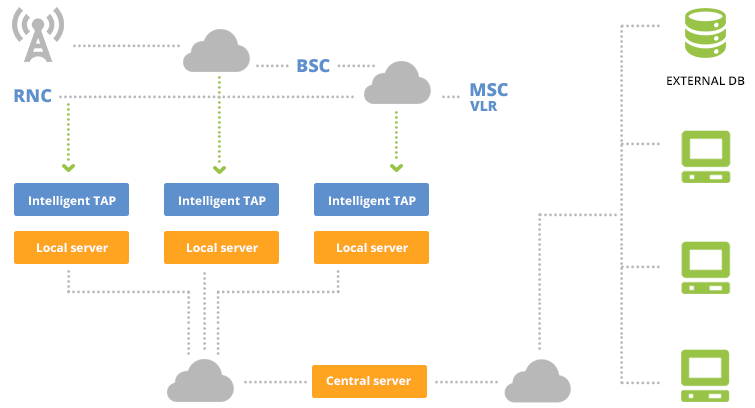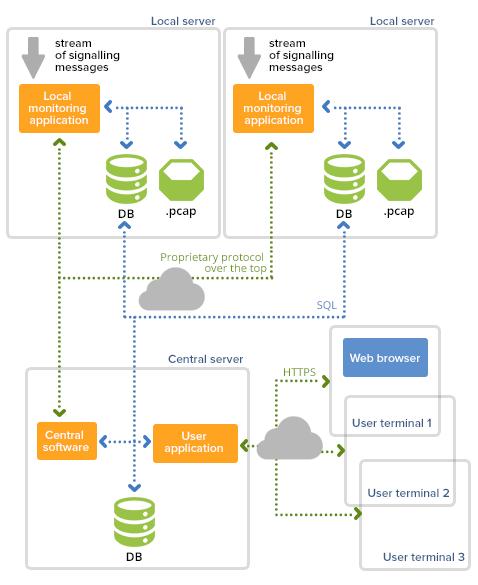|
Cost-effective solution that grows with your needs |
NetScan in brief
System Architecture
|
|

Two-step data processing

Distributed information storage

User-friendly Interface
Network status indication
Statistics
Roaming statistics
User-terminal statistics
Call tracing
Calls can be traced based on:
Transaction details
Cell analysis
Roadmap
I feel like the trainer is the best professor and mentor one can have.
The best training ever.
A lot of useful materials and knowledge.
Training was above expectations!
The course covers all the impacted areas.
Training provides useful methods to analyze real protocols.
Excellent exercises!
Course covers all important issues and presents relevant examples.
More than excellent course!
Overwhelming knowledge and expertise. Interactive and enjoyable learning.
Trainer was able to answer practical questions.
The whole course was very valuable.
Regardless of technology I received theoretical and practical answers.
Trainer understands local market experience.
Excellent knowledge from the trainer.
Deep and detailed topic analysis.
I can proudly recommend these courses for others as well.
Amazing, more than excellent, audience-oriented trainer.
The trainer is capable of answering all my questions.
Good logical structure of the course and explanation.
Good direct connection between course material and real problems.
Experienced trainer. Real cases with references to recommendations.
Seminar entirely for Telecommunication operators. A lot of issues covered.
Very well organized training programmes.
Everyone gets individual attention from the trainer.
The training is completely excellent.
Many different people from different operators can share their problems and ideas.
Really practical and very fruitful training.
Trainers have passion to teach & impart knowledge.
Trainer is open for comments and discussion.
Excellent course and instructor.
Excellent, knowledgeable trainer, open to communication.
A good approach to a complex problem.
Excellent methodology of teaching. Simple and easy to understand training.
Very effective training methods.
Very clear explanations.
Highly professional trainer with lots of practical experience. Friendly and open.
I am very impressed with the trainer's knowledge and experience.
This course will be very useful in my daily work.
Professional, high-quality trainer.
Unique training covering the most important areas of my work.
Good class notes and great examples.
The course exceeded my expectations. Hats off!
Perfect course.
Trainer understands local market experience.
Experienced trainer. Excellent descriptions.
Great teacher with deep knowledge and experience.
Trainer adapted to the expectations of the audience.
A clear picture of GSM switching and signalling.
I received a lot of useful information which I use in my work every day.
The training exceeded my expectations.